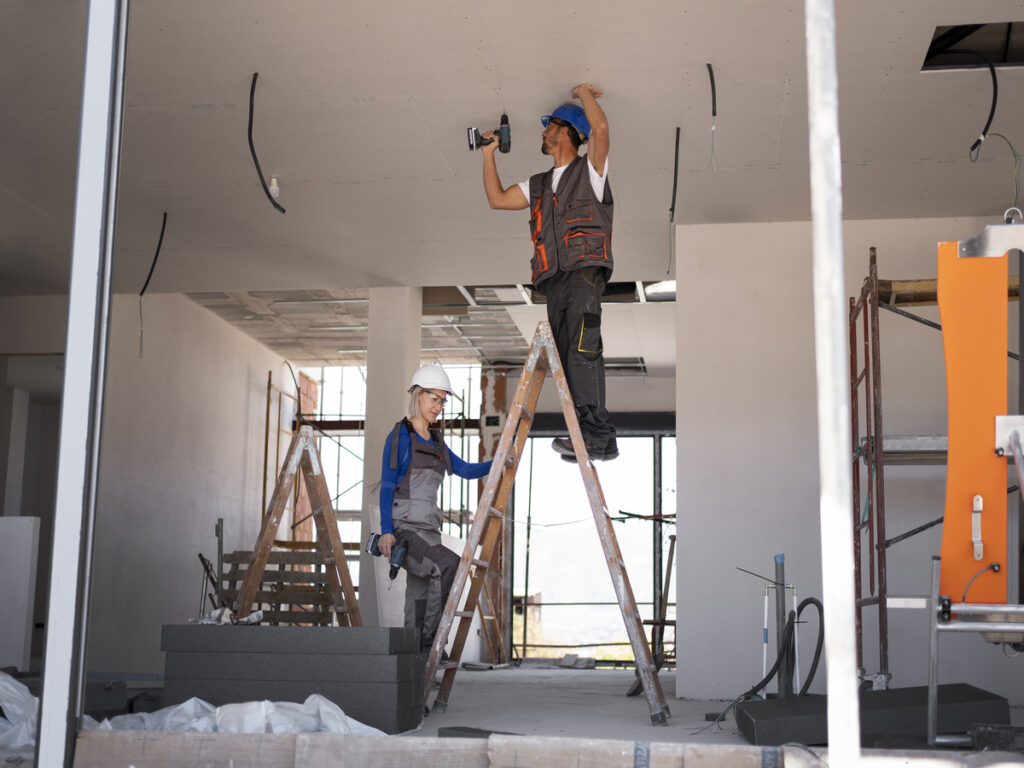How to Plan Your Home Renovation Costs

Planning a home renovation is exciting—whether it’s modernizing a kitchen, upgrading bathrooms, or refreshing an outdoor space, renovations can breathe new life into a home. However, without careful budgeting, costs can quickly spiral out of control. Knowing how to plan your home renovation costs will ensure you stay within budget, prioritize the most impactful upgrades, and get the most out of every dollar spent.
In this guide, we’ll cover essential steps to help you prepare for your renovation project from start to finish, offering practical advice on how to keep costs down and achieve stunning results.
1. Set Clear Goals for Your Renovation
The first step in planning home renovation costs is understanding exactly what you want to accomplish. Are you aiming for a complete overhaul of multiple rooms or just refreshing a few areas? Deciding on the project scope allows you to align your budget and know where to allocate resources.
Consider which upgrades will have the most impact:
- Essential Repairs: Fix structural issues like roofing, foundation, or outdated electrical wiring.
- Value-Boosting Projects: Kitchen and bathroom remodels tend to offer high returns if you’re looking to boost property value.
- Aesthetic Changes: If you’re interested in cosmetic improvements like painting or updating fixtures, these can often be done on a smaller budget.
Having clarity on your renovation priorities will guide your budget decisions and help prevent overspending on features that don’t align with your main goals.
2. Estimate Costs by Project Type
Once you know what you want to accomplish, start estimating costs based on each area or project type. Here’s a general breakdown of average costs:
- Bathroom Remodel: $5,000 – $15,000 depending on fixtures, flooring, and cabinetry.
- Kitchen Remodel: $10,000 – $30,000 or more, especially if appliances and countertops are replaced.
- Exterior Improvements: $5,000 – $10,000 for landscaping, siding, or new paint.
- Living Room Updates: $1,500 – $5,000 for flooring, paint, and minor updates.
For a detailed estimate, consider consulting with contractors, using online tools, or checking with home improvement retailers. These resources help provide a clear picture of materials and labor costs. And if you need to dispose of old materials, a dumpster rental from Dumpster Wiz can make cleanup easy and affordable.
3. Decide on DIY vs. Professional Help
Choosing to tackle some projects yourself can help control renovation costs. For example, painting, removing old flooring, and simple landscaping are tasks homeowners can often handle with minimal experience.
However, some projects are better left to professionals, including:
- Electrical Work: Safety and code compliance make this a job for licensed electricians.
- Plumbing Changes: Incorrect installation can lead to costly leaks and water damage.
- Structural Changes: Wall removals or additions should be evaluated by experts to maintain structural integrity.
Knowing when to DIY and when to call in a pro will help you balance the budget and avoid costly mistakes. Remember, doing it right the first time saves money in the long run.
4. Create a Contingency Budget
Unexpected expenses are common in renovations, so it’s essential to include a contingency fund. This “just-in-case” portion of your budget will cover surprise costs like hidden water damage, outdated wiring, or unforeseen repairs.
A good rule of thumb is to set aside an extra 10-20% of your overall budget for contingencies. For example, if your renovation is budgeted at $20,000, consider allocating an additional $2,000 to $4,000 for unexpected costs. This approach provides peace of mind and keeps you from scrambling if a surprise expense arises.
5. Plan for Disposal and Cleanup
Large-scale renovations generate significant waste, including debris, old furniture, and building materials. While it’s often an overlooked aspect of budgeting, disposal can become costly if not planned for in advance. Renting a dumpster is a practical, affordable option for managing construction waste and streamlining the cleanup process.
With Dumpster Wiz, our dumpster rental service in Florida makes disposal fast and affordable, allowing you to focus on the renovation itself instead of worrying about hauling debris. We offer various sizes to suit any project, from minor renovations to major demolitions, ensuring you only pay for the space you need.
6. Get Multiple Quotes from Contractors
If you plan to hire professionals, obtaining quotes from multiple contractors is crucial to controlling costs. Prices can vary widely depending on the contractor’s experience, materials, and approach to the project. Here’s how to make the most of your bids:
- Get at Least 3 Quotes: This will provide a good range to compare and help identify outliers.
- Request Itemized Quotes: A breakdown of costs for labor, materials, and other expenses makes it easier to understand where your money will go.
- Ask for References and Reviews: Choosing a contractor based on experience and reputation can help prevent future issues and additional costs.
Remember, the lowest bid isn’t always the best choice. Balancing cost with quality will save you more over time than opting for a quick but potentially subpar job.
7. Stick to Your Budget by Avoiding Mid-Project Changes
One of the most common reasons renovation budgets increase is mid-project changes. Altering designs, swapping materials, or expanding the project scope during construction will quickly add unexpected costs. Stick to your original plans as much as possible to avoid extra expenses and keep the renovation on schedule.
To help avoid last-minute changes:
- Make Decisions Early: Choose materials, colors, and fixtures before beginning.
- Discuss Alternatives Upfront: If flexibility is needed, discuss potential substitutions with your contractor before work begins.
- Maintain Open Communication: Regular updates from contractors can help prevent misunderstandings and reduce the need for changes.
8. Track Expenses and Stay Organized
Keeping track of your renovation expenses allows you to stay within budget and recognize areas where you may be overspending. Consider creating a detailed spreadsheet that includes every aspect of your renovation:
- Material Costs: Include flooring, paint, cabinets, and fixtures.
- Labor Costs: Track individual contractor payments and invoices.
- Disposal Fees: If renting a dumpster, track these costs as well.
- Contingency Fund Usage: Note any unexpected expenses to see where the budget may need adjusting.
This expense-tracking strategy allows you to make informed decisions and helps keep the project under control.
Final Thoughts on Budget-Friendly Renovations
Planning your home renovation costs is the key to achieving a successful, stress-free upgrade without breaking the bank. From setting clear goals and estimating costs to making smart decisions about DIY vs. professional help, each step in the planning process plays a crucial role in keeping you within budget. A well-thought-out budget will allow you to enjoy your newly improved space without financial strain.
Dumpster Wiz, your reliable partner in Florida for dumpster rental, is here to help with all your disposal needs during the renovation. Our affordable, convenient services ensure you stay on track, with fast and hassle-free debris removal. With careful planning and the right support, you can bring your renovation vision to life without compromising on quality or budget!
